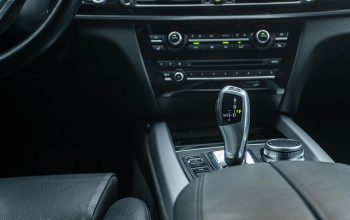Vehicle history reports are essential tools for car buyers, providing detailed insights into a vehicle's past, including accidents, maintenance, and ownership changes. They expose fraudulent practices like odometer tampering and help buyers avoid costly mistakes by revealing insurance claims, repairs, and salvageable status. In a competitive market, unscrupulous dealers use sophisticated tricks; staying informed and using VIN checks and comprehensive history reports is crucial to protect against these deceptions. Free VIN checks offer basic details, while paid services provide in-depth insights into accidents, ownership, maintenance, and odometer readings, ensuring informed purchasing decisions and long-term reliability.
Buying a car should be an exciting experience, but it’s crucial to look beyond the gleaming exterior. Recent trends reveal a surge in fraudulent practices, such as odometer tampering, costing unsuspecting buyers thousands of dollars. This article equips you with the knowledge to navigate the complexities of vehicle history. We’ll explore how comprehensive vehicle history reports provide transparency, uncovering hidden insurance claims, maintenance records, and even salvage titles. By understanding common fraudulent practices like odometer tampering and learning effective VIN check strategies, you can protect your investment and make an informed decision.
- Understanding Vehicle History Reports
- Common Fraudulent Practices in Car Sales
- The Role of Odometer Tampering
- How to Conduct a Comprehensive VIN Check
- Combining Free and Paid Services for Accuracy
- Uncovering Insurance Claims and Maintenance Records
- Protecting Your Investment: Pre-Purchase Checks
Understanding Vehicle History Reports

Vehicle history reports are detailed records that offer insight into a car’s past, including any accidents, maintenance, and ownership changes. These reports have become increasingly important as fraudsters employ clever tactics to dupe unsuspecting buyers. One common scheme involves tampering with the odometer to show lower mileage than is actually the case, which can significantly impact a car’s value. A comprehensive history report will reveal such discrepancies, as well as any insurance claims, repairs, and even if a vehicle has been deemed salvageable after an accident.
These reports are generated from various data sources, including government records, auto auctions, and private companies specializing in vehicle history services. They provide buyers with a powerful tool to make informed decisions by uncovering potential red flags that could save them substantial financial losses or surprise repairs down the line.
Common Fraudulent Practices in Car Sales

In the competitive car sales market, unscrupulous dealers have resorted to various fraudulent practices to boost profits. One of the most prevalent is odometer tampering—altering a vehicle’s odometer reading to make it appear younger and less driven than it actually is. This deceptive tactic can cost buyers thousands, as they may pay a premium for a car that has been misrepresented. Similarly, false insurance claims and fabricated maintenance records are also common methods used to artificially enhance a car’s history, luring in unsuspecting purchasers.
These fraudulent activities have become increasingly sophisticated with the digital age, making it easier for bad actors to manipulate data. Buyers must be vigilant and proactive to protect themselves. A thorough background check using the vehicle’s unique VIN (Vehicle Identification Number) is crucial. While free VIN checks provide a starting point, combining this with paid services offering detailed history reports is recommended to uncover any red flags or discrepancies that may indicate fraudulent activity.
The Role of Odometer Tampering

Odometer tampering is a deceptive practice where the mileage on a vehicle is illegally altered, often to make it appear younger and more valuable. This fraudulent activity has become increasingly common in recent years, as crooks find new ways to manipulate odometers and dupe unsuspecting buyers. By changing the reading, these criminals can evade detection when selling cars with a history of accidents or extensive repairs. The result? Buyers may end up paying premium prices for vehicles that are not what they seem.
This tampering poses significant risks to consumers, as it can hide major issues and lead to safety concerns. A car’s mileage is a critical indicator of its overall condition and longevity, so any manipulation can be disastrous for buyers. That’s why staying informed and utilizing tools like vehicle history reports and comprehensive VIN checks is essential to protect against such frauds.
How to Conduct a Comprehensive VIN Check

To conduct a comprehensive Vehicle Identification Number (VIN) check, start by obtaining the VIN from the vehicle’s registration documents or by locating it on the dashboard near the driver’s side door handle. Once you have the VIN, use reputable online platforms that offer detailed vehicle history reports. These services cross-reference the VIN with vast databases to retrieve information from various sources, including state records, insurance claims, and maintenance histories.
Ensure the platform you choose is trusted and provides a wide range of data points, such as accident history, odometer readings, ownership details, and any reported damage or repairs. Read reviews and compare pricing to make an informed decision. Many services offer free basic checks but charge for more in-depth reports that delve into historical details, ensuring you get the most accurate picture before making a significant purchase.
Combining Free and Paid Services for Accuracy

While free VIN checks offer a basic starting point, they may not reveal all the intricacies of a vehicle’s history. These services typically provide information on reported accidents, but they often lack depth when it comes to maintenance records or insurance claims. To ensure you get the full picture, pairing a free check with a paid service is recommended. Paid options delve deeper, offering detailed reports that include previous owners, service histories, and even odometer readings—all crucial factors in identifying potential fraud.
By combining both approaches, you gain a more comprehensive understanding of the car’s past, minimizing the risk of making an uninformed decision. This two-pronged strategy allows you to make a well-calculated purchase, safeguarding your investment from hidden surprises or fraudulent practices that could cost you dearly down the road.
Uncovering Insurance Claims and Maintenance Records

A comprehensive vehicle history report delves into the car’s past, including any insurance claims made against it. This is crucial as accidents can indicate potential safety issues and hidden repair costs that might not be immediately apparent during a test drive. By accessing detailed records, buyers can gauge the extent of previous damage, whether structural or cosmetic, and assess if the vehicle has undergone the necessary repairs.
Furthermore, these reports reveal regular maintenance practices, such as service intervals, oil changes, and replacement parts. This information is essential for understanding the overall care and condition of a vehicle, ensuring it hasn’t been neglected and providing insight into its long-term reliability.
Protecting Your Investment: Pre-Purchase Checks

Before buying a car, it’s crucial to perform thorough pre-purchase checks to protect your investment. A simple VIN (Vehicle Identification Number) check is a great starting point to gather basic information about the vehicle’s history. However, this initial step should be complemented with more in-depth research. Scrutinize the car’s maintenance records, insurance claims, and any reported accidents or damage.
Odometer tampering and other fraudulent practices are on the rise, so it’s essential to verify the mileage indicated by the odometer. A comprehensive vehicle history report from reputable services can provide this transparency, ensuring you’re not buying a car with hidden issues or a compromised structure due to previous accidents. By combining free VIN checks with paid history reports, savvy buyers can make informed decisions and avoid costly surprises.
Before purchasing a car, it’s crucial to look beyond its shiny exterior. By understanding vehicle history reports and the potential for fraudulent practices like odometer tampering, you can make an informed decision that protects your investment. A comprehensive VIN check, combining free and paid services, offers transparency and peace of mind. Don’t let hidden issues or manipulated mileage catch you off guard; do your research and know what to look for to ensure a safe and sound purchase.



